Related Research Articles

The Bishop of St Albans is the Ordinary of the Church of England's Diocese of St Albans in the Province of Canterbury. The bishop is supported in his work by two suffragan bishops, the Bishop of Hertford and the Bishop of Bedford, and three archdeacons.
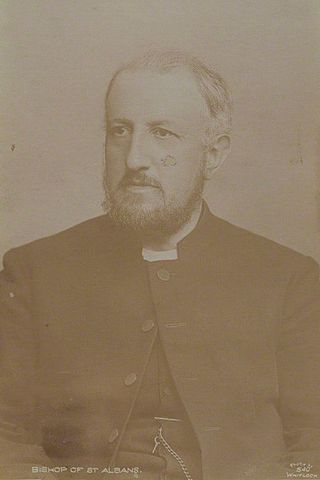
Edgar Jacob was an English churchman, who became Bishop of Newcastle and then Bishop of St Albans.

William Noel Hodgson MC was an English poet. During the First World War, he published stories and poems under the pen name Edward Melbourne.
John Waine was Bishop of Chelmsford from 1986 to 1996; and previously Bishop of St Edmundsbury and Ipswich from 1978 to 1986, Bishop of Stafford, 1975–1978. He also served as Clerk of the Closet from 1989 to 1997, and in retirement served as a lay member on the Press Complaints Commission.
Richard Sampson was an English clergyman and composer of sacred music, who was Anglican bishop of Chichester and subsequently of Coventry and Lichfield.
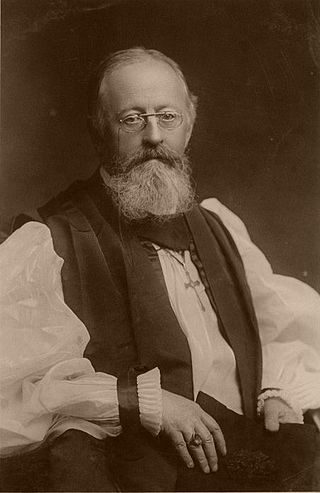
William Walsh was a Prebendary of St Paul's Cathedral, Bishop of Mauritius and Dover. At the end of his life he was Archdeacon of Canterbury. While he was Bishop of Mauritius, the island experienced one of its worst cyclones; in consequence his cathedral had to be used temporarily as a hospital.
Maxwell Homfray Maxwell-Gumbleton was an Anglican bishop in the first half of the 20th century.
David Thomson, is a British retired Church of England bishop. From 2008 to 2013, he was the Bishop of Huntingdon, sole suffragan bishop of the Diocese of Ely.
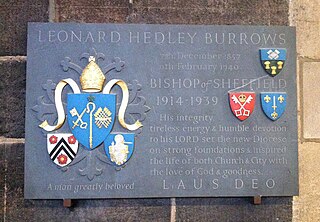
Leonard Hedley Burrows was an Anglican bishop.
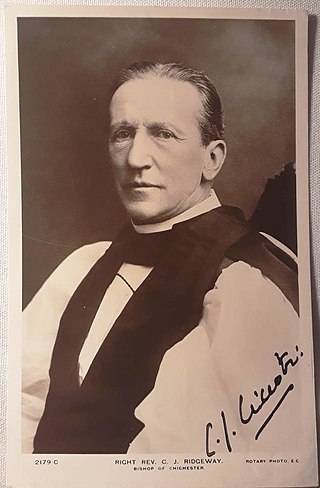
Charles John Ridgeway was an English churchman, the Bishop of Chichester from 1908 to 1919.

Winfrid Oldfield Burrows was the Bishop of Truro and later Chichester in the first third of the 20th century.
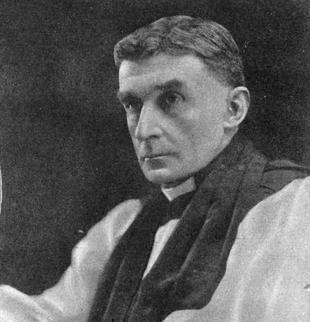
Albert Augustus David was an Anglican bishop and schoolmaster.
Richard Brook (1880-1969) was an English scholar and academic who was Bishop of St Edmundsbury and Ipswich from 1940 to 1953.
John Edwin Watts-Ditchfield was an eminent 20th century Anglican priest and distinguished author.
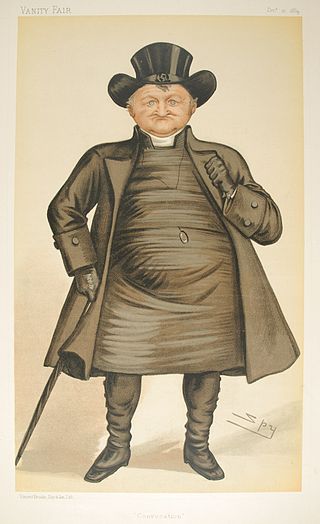
Edward Bickersteth was an Anglican priest in the 19th century.
Hubert John Hutchinson was the Dean of Barbados from 1945 until 1950.

Canon Sydney Robert Elliston MA was a journalist, vicar, and canon of Ripon Cathedral. Two of his brothers were William Rowley Elliston and George Elliston MP. He was involved with the formation of the Ripon Diocesan Board of Finance in 1913, and was its secretary from 1914 to 1935. At his funeral it was said of him that, "The diocese of Ripon owed a great debt to the work of Canon Elliston in laying down sound principles of Church finance." While looking after the finances of Ripon diocese, he was at the same time vicar of one of north-east England's Barber churches: the Church of St Thomas the Apostle, Killinghall (1880), designed by William Swinden Barber.
Henry Burrans Graham, STD was an English Anglican priest.
Joseph Patricius Hawes is a British Anglican priest. Since 2018, he has been the Dean of St Edmundsbury. From 2003 to 2018, he was Vicar of All Saints Church, Fulham in the Diocese of London. His early parish ministry was spent in the Diocese of Southwark.
References
- ↑ "Handbook of British Chronology" Fryde,E.B;Greenway D.E;Porter,S;Roy,I Cambridge, CUP,1996 ISBN 978-0-521-56350-5
- 1 2 Foster, Joseph (1888–1892). . Alumni Oxonienses: the Members of the University of Oxford, 1715–1886 . Oxford: Parker and Co – via Wikisource.
- 1 2 "Hodgson, Rt Rev. Henry Bernard" . Who's Who . A & C Black. Retrieved 16 February 2022.(Subscription or UK public library membership required.)
- ↑ "The Clergy List, Clerical Guide and Ecclesiastical Directory" London, Hamilton & Co 1889
- ↑ Malden Richard (ed) (1920). Crockford's Clerical Directory for 1920 (51st edn). London: The Field Press. p. 1320.
- ↑ "Thornbury roots". Archived from the original on 5 July 2008. Retrieved 30 December 2009.
- ↑ The Times, Tuesday, May 04, 1897; pg. 12; Issue 35194; col E Ecclesiastical Intelligence. Rural Dean of Norham
- ↑ Consecration Of Bishops. The New Sees For Essex And Suffolk The Times Wednesday, Feb 25, 1914; pg. 6; Issue 40456; col B
- 1 2 The Times obituary, 1.3.21
- ↑ Lambeth Palace Library, Davidson 10
- ↑ ‘Before Action’, Charlotte Zeepuat, Pen and Sword, 2015
- ↑ Geograph
- ↑ Haig, Catriona (2004). "Hodgson, William Noel [pseud. Edward Melbourne] (1893–1916), soldier and poet" . Oxford Dictionary of National Biography (online ed.). Oxford University Press. doi:10.1093/ref:odnb/75846.(Subscription or UK public library membership required.)